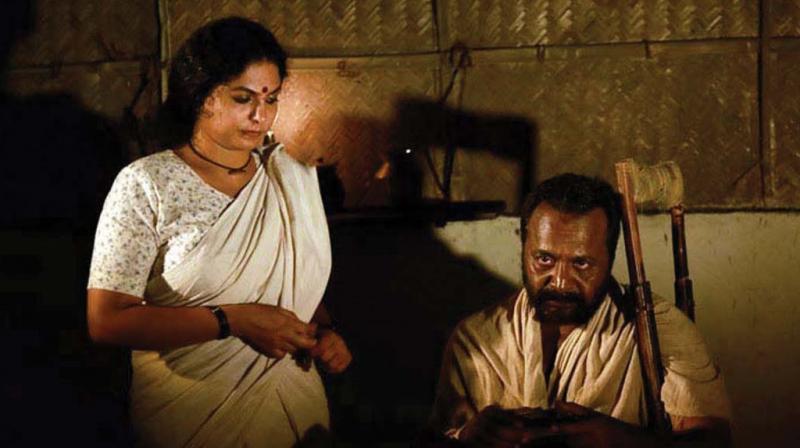Bhayanakam movie review: A riveting portrayal of war

Cast: Renji Panciker, Asha Sharath
Director: Jayaraj
When postman (Renji Panicker) comes to Kuttanad on a chill morning rowing his ferry to stay in Gowri Kunjamma’s (Asha Sharath) house, he looks desolate. An ex-soldier, his one leg bears the brunt of war days — a constant reminder to him of his painful past. He reaches the place almost 21 years after World War I and by the time World War II is about to break. In the village, every young man dreams of joining the army because he could feed his family as the army pays well. The nameless postman, who has seen and experienced the aftermath of war, hates young men joining the army. He even tries to discourage them from participating in the fitness test.
Jayaraj’s Bhaynakam asks that pertinent question of ‘why we need a war’. It marks an era. References about untouchability and poverty tell us what a struggle life was for them and why their younger generation opts for joining the army. However, the crux of the movie, which is an adaptation of Thakazhi Sivasankara Pillai’s Kayar, is the effect World War II had on the lives of people in Kuttanad. History says in Kuttanad alone around 650 people died during World War II. But we won’t see any war zones in the movie. The emotions are told through the visuals of Kuttanad that turn bright and gloomy with mood change, and the letters the postman delivers at each home. Rain is a metaphor in the film.
The whole movie can be divided into two colour tones — cheerful and melancholic. We see a set of characters in the first half and revisit them in a different context in the second half. Nikhil S. Praveen’s camera absorbs the mood swings of the characters and the entire landscape through these two tones. If the postman is a messenger of happiness in the cheerful and colourful first half, he turns into a bad omen in the colourless (resembling black and white) second half. We see the beauty of Kuttanad during day and night through his works. But there is a repetition of long and panoramic shots of the lake.
The controlled background score blends beautifully with the theme. The notes, especially the violin ones played in the second half, uplift the entire mood. Ambient sounds are realistic. These never obstruct our viewing experience. The three songs are aptly placed. M.K. Arjunan’s music (especially the choice of instruments like harmonium) and Sreekumaran Thampi’s lyrics in tune with the period.
Renji Panicker steals our heart as the postman. His transformation from the ‘regular cool dad’ in films to a distressed soul in Bhayanakam is stunning. He has beautifully brought onto the screen the helplessness of the postman, whom people shoo away once the war begins. Nobody, except Gowri, wants to see him and talk to him. But he cannot open up his heart to her for a strong reason. The curses he receives from people for giving the news of death haunt him. Asha Sharath, an apt choice as Gowri, too has given a neat performance. But, amaetur artistes playing sidekicks falter at certain points.
The costume and art department of Bhayanakam too deserves mention for their meticulous body of work. In nutshell, Bhayanakam flows into our hearts like a river, slowly, but deeply.

